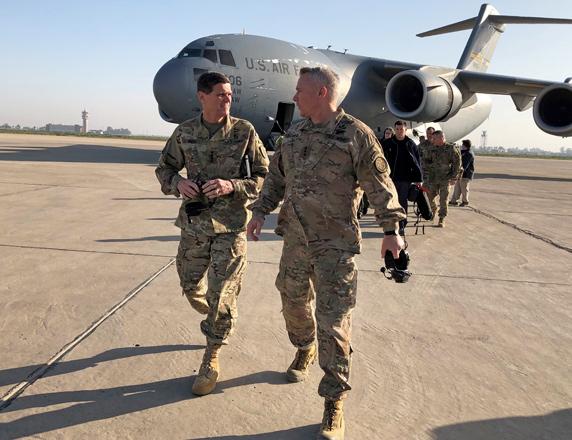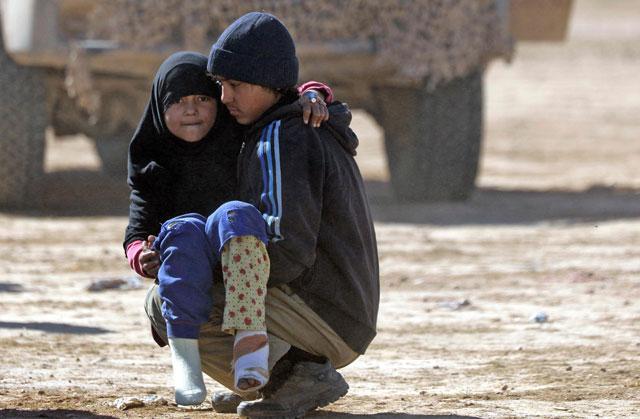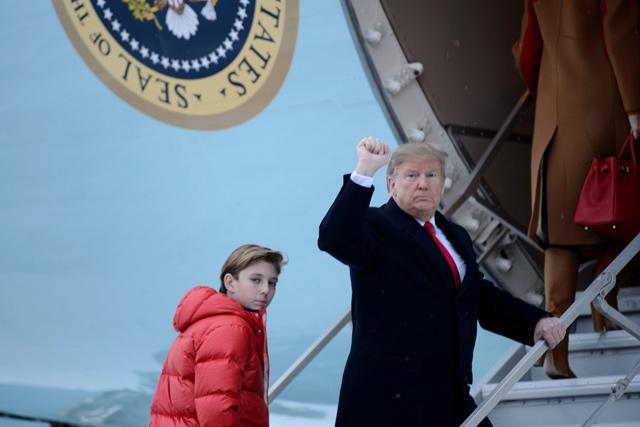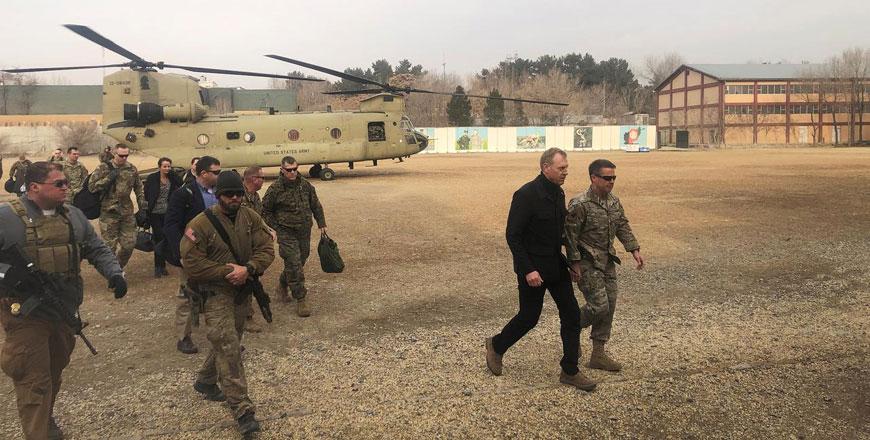You are here
In Iraq visit, US general eyes longer-term Daesh threat
By Thomson Reuters Foundation - Feb 17,2019 - Last updated at Feb 17,2019

US army Gen. Joseph Votel (left), head of the US military’s Central Command, walks with US army Lt. Gen. Paul La Camera commander of the US-led coalition against Daesh, after landing in Baghdad, Iraq, on Sunday (Reuters photo)
BAGHDAD — The general overseeing US forces in the Middle East flew into Iraq on Sunday for talks with US and Iraqi officials expected to focus on ensuring that Daesh cannot stage a resurgence after US troops withdraw from neighbouring Syria.
US army Gen. Joseph Votel, head of the US Central Command, made no remarks to reporters upon landing in Iraq, where he was expected to get battlefield briefings on the final push to retake the remnants of Daesh’s once vast territory in Syria.
Votel was also expected to discuss with officials in Baghdad what impact the US withdrawal might have on Iraq, where Daesh has already shifted to guerrilla hit-and-run tactics after losing all its territory.
Votel has said he does not expect President Donald Trump’s withdrawal of more than 2,000 troops from Syria to significantly alter US troop levels in Iraq, where the United States has more than 5,000 forces. Those force numbers would stay “more or less steady”, he said.
“We will want to make sure that we get the right capabilities on the ground to support the Iraq is going forward,” Votel told reporters travelling with him last week. “But I don’t necessarily think that will result in an expanded footprint by the United States or by the coalition forces.”
Threat of resurgence
Trump’s surprise decision in December to withdraw US troops from Syria confounded his national security team and led to the resignation of his defense secretary, Jim Mattis. It also shocked US allies and sent generals like Votel scrambling to carry out the pullout in a way that best preserves as many gains as possible.
Daesh still poses a threat in Iraq and some US officials believe that the group’s leader, Abu Bakr Al Baghdadi, may be hiding in Iraq. Baghdadi has led the group since 2010, when it was still an underground Al Qaeda offshoot in Iraq.
The Pentagon’s inspector general said in a report Daesh remained an active insurgent group and was regenerating functions and capabilities more quickly in Iraq than Syria.
“Absent sustained [counterterrorism] pressure, ISIS [Daesh] could likely resurge in Syria within six to twelve months and regain limited territory,” the report said, using an acronym for Daesh.
In an interview on Friday, Votel told Reuters he would recommend continued arms and aid to the Syrian Democratic Forces as needed, provided the Kurdish-led fighters keep the pressure on Daesh and help prevent its resurgence.
Votel has said Daesh may still count tens of thousands of fighters, dispersed throughout Iraq and Syria, with enough leaders and resources to present a menacing insurgency in the months ahead.
Iraq’s military has already shifted how it combats the group, moving away from major combat operations to what Votel calls “wide-area” operations. The US military has also modified the way that it supports Iraqi security forces.
“We’ve adjusted our footprint as well, and where we go and where we are best located to continue to advise and assist them with their operations,” Votel said last week.
“We’ve made some changes in terms of where we are so we can be in the best locations.”
Related Articles
WASHINGTON — A top US general warned on Tuesday that Daesh would pose an enduring threat following a planned US withdrawal from Syria, sayin
WASHINGTON — Pushing back against Republican opposition, US President Donald Trump reaffirmed his determination to pull US troops out of ‘‘e
BAGHDAD — Acting US Defence Secretary Patrick Shanahan arrived in Baghdad on Tuesday for an unannounced visit during which he said he would














